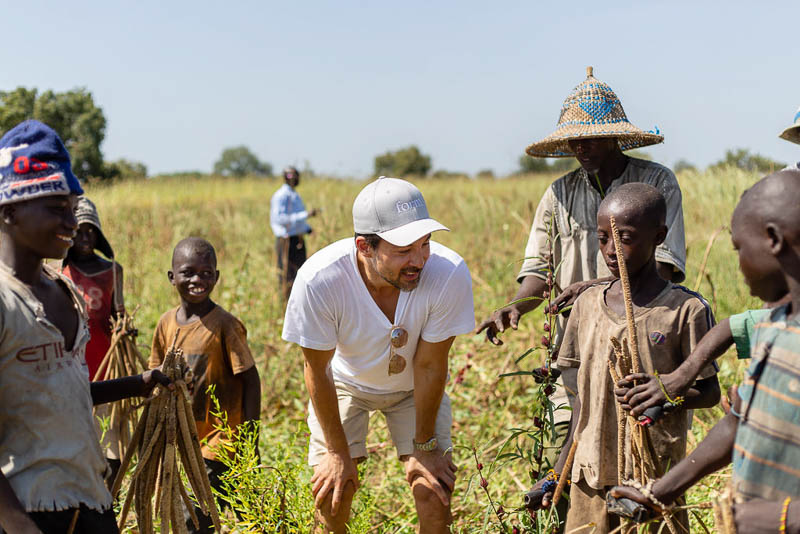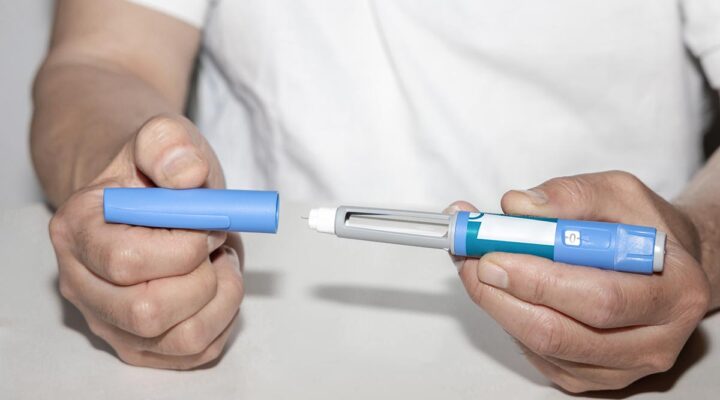Learn More About the Form Feeding Fund

“I have often dreamt that it would be so much nicer if there was no illness or poverty in the world and everyone was equal. However, until that day arrives I will continue to spend every waking hour trying to make a difference for the wonderful people of Bansang.” (Anita Smith, MBE, MRG)
Bansang Hospital is a 5-hour drive from the The Gambia’s capital, Banjul, in a small village centred around one dirt track. The village scarcely receives electricity – a few hours in the morning and again in the evening – and the majority of houses in the villages are made of mud. The hot, dry conditions of Sub-Saharan Africa make it difficult to grow crops; the only plantations surrounding the village are peanuts and couscous, with everything else imported at great expense.
During the leadership of Yahya Jammeh, which spanned 23 years, the region was aligned with the opposition and so was painfully neglected by the government – something that is immediately noticeable when visiting.
Anita first encountered Bansang during a holiday to The Gambia in 1992. The hospital was operating in terrible by any standards. Patients were lying in beds with rusted frames and stained mattresses, often four or five to a bed. The mosquito nets, which are essential in the region in the prevention of malaria, had holes. The hospital’s access to electricity was unreliable, with surgeons often operating by candlelight, amongst the rats that were frequent visitors in the operating theatres. One of Anita’s first projects was to create a new children’s ward, only because the existing ward let in water every time it rained.
Anita recognised early on that the hospital’s success was predicated upon the wellbeing and commitment of its staff, which is now central to her mission. Her biases initially led her to believe that the staff were motivated by money – as their salary equates to a mere £15 a month – only to realise that they were motivated by respect. They simply wanted recognition for their service to others. Bansang’s staff retention rate is near 100% and, in the last year, the Appeal has provided new housing for medical staff. Their previous accommodation was infested with rats, cockroaches and even snakes, which is a testament to the high quality of care that they were providing in spite of difficult conditions.
Indeed, the staff are among the most remarkable humans met by Damian and Natalia during their November 2018 visit. Education in the region is poor, so many people seek sponsorship to obtain medical degrees abroad. A recent addition to the team had learned Spanish in order to be able to study in Cuba, whilst the head nurse, Mariama, studied in China.
The CEO, Baba Jenj, chooses to live in inferior conditions to most of his staff. He refuses to accept more than necessary in order to divert funds to the betterment of the medical team. In fact, staff had to wait until he was travelling to paint his hut, as they knew that he would not accept the kind gesture otherwise.
Thus, it does not come as a surprise that Bansang Hospital has now been named the best public care provider in The Gambia, continuing to support the 600,000 people in the surrounding areas. Although, 27 years ago, Anita’s priorities were basic antibiotics and painkillers, the hospital now has three fully-functioning operating theatres and surgeons are the best equipped that they have ever been.
In The Gambia, 48.6% of people live below the poverty line, with 1 in 3 vulnerable to food insecurity (unreliable access to nutritious and affordable food) (source: https://www1.wfp.org/countries/gambia).
In 2017, from launch, Form pledged to provide a meal to the Appeal with every product sold. The Form Feeding Fund was set up to provide food to the patients and their companions, who have often travelled miles to receive medical attention without money to buy food or medicine.
Previously, people would often leave the hospital before being discharged, simply because their companions could not afford food. This resulted in high readmission rates that put unnecessary strain upon the hospital. The Fund is also used for the benefit of patients to purchase additional medicine and to complement the meals provided by the hospital.
Proper nourishment is fundamental to a full recovery, something that we take for granted in developed countries. The provision of money to patients and companions ensures that patients have the means and strength they need to recover.
You can learn more about Anita, Bansang Hospital Appeal and the work the charity does here.


















